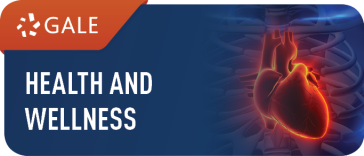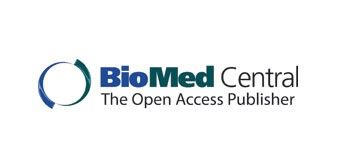Research millions of articles from over 17,000 scholarly journals and other authoritative sources—including thousands of podcasts and transcripts from NPR and CNN, as well as videos from BBC Worldwide Learning. Includes full-text access to the New York Times, updated daily.
Health Research
Research a wide range of health issues. You can look up medications, explore various diseases and conditions, and find information from the Gale Encyclopedia of Alternative Medicine.
Health information is everywhere. In the course of any normal day, people are exposed to sound bites on the radio and television, articles in magazines and newspapers, and the Internet. The quality of the information varies widely, so users are left wondering how to recognize good information from bad. Often, information is presented on web sites that make money by advertising or selling products. Information might be outdated, inaccurate or from a source with questionable motives. Some web sites intentionally include designs that mimic authoritative sites, with the intention of building trust for a product or service. For some topics, these issues might not be as important, but the implications for inaccurate health information are high. In order to make good decisions about health, patients and caregivers need quality information.
When evaluating health information, here are some questions to ask:
Who is the author or source?
Look for authoritative, knowledgeable sources.
Is it accurate?
Look for evidence of truth and reliability of the information.
What is the purpose?
Sometimes information is provided as a way to sell something, rather than to provide quality information.
Is the content relevant and appropriate?
Consider the audience and the relevancy to the information need.
Is the information current?
Health information can become outdated quickly, so currency is important.
The list above is based on the CRAAP Test, developed by the Meriam Library at the California State University, Chico.www.csuchico.edu/lins/handouts/eval_websites.pdf
- MedlinePlus Guide to Healthy Web Surfing
This guide provides the questions to ask when evaluating health information, then provides good explanations of the answers. - Looking for Reliable Information?
The Health on the Net Foundation provides a very good article on evaluating sites at the link below. - Evaluating Health Information
This Health Topic page on MedlinePlus provides a comprehensive list of resources for librarians and patrons alike, including evaluating specific kinds of health information.
- National Organization for Rare Disorders (NORD)
- The NORD web site includes a database of organizations for rare disorders in addition to the well-known comprehensive disease database which covers over 1,150 diseases.
- DoctorFinder
This physician locator from the American Medical Association (AMA) provides basic professional information on virtually every licensed physician in the U.S, including doctors of medicine and osteopathic medicine. - American Hospital Directory
This website provides data for over 6,000 hospitals in the U.S.
- California Health Interview Survey
The California Health Interview Survey (CHIS) provides credible and comprehensive data on the health of Californians. The CHIS survey is conducted every two years on a wide range of health topics, providing a detailed picture of the health and health care needs of California’s large and diverse population. - California Public Health Statistics
The California Department of Public Health provides a variety of reports, statistics, health indicators, and other health-related data that will help libraries understand the health issues and needs in their communities. - California Demographics and Statistics
The State of California provides demographics data and health statistics that are useful for community needs assessments. Users can access state data files, databases, geographic data, and other data resources. Note: Specific statistical and demographic data can be hard to find by navigating through the site; using key word in the search box is most effective. - StateHealthFacts.org
From the Kaiser Family Foundation, this easy-to-use site allows searchers to find and compare health data at the state level on a number of health indicators. - FastStats – State and Territorial Data
Clicking on any state in the map takes users to a snapshot of available vital health statistics for that particular state. - Behavioral Risk Factor Surveillance System
The Behavioral Risk Factor Surveillance System (BRFSS) is a state-based system of health surveys that collects information on health risk behaviors, preventive health practices, and health care access primarily related to chronic disease and injury. For many states, the BRFSS is the only available source of timely, accurate data on health-related behaviors. From the link provided, be sure to check the links at the left sidebar for additional tools.
BioMed Central is an excellent open access publisher website with 258 peer-reviewed journals mostly covering medicine.



